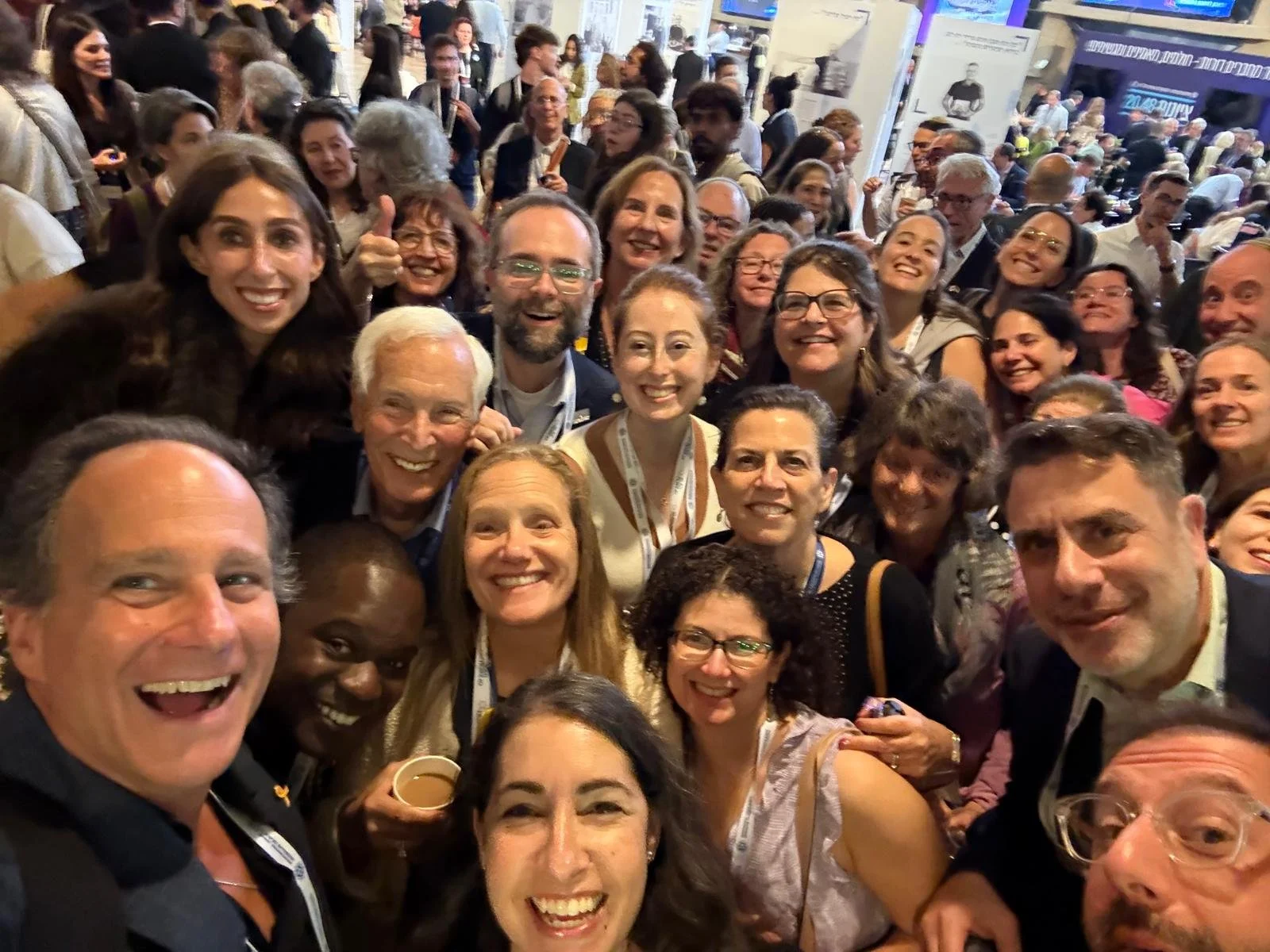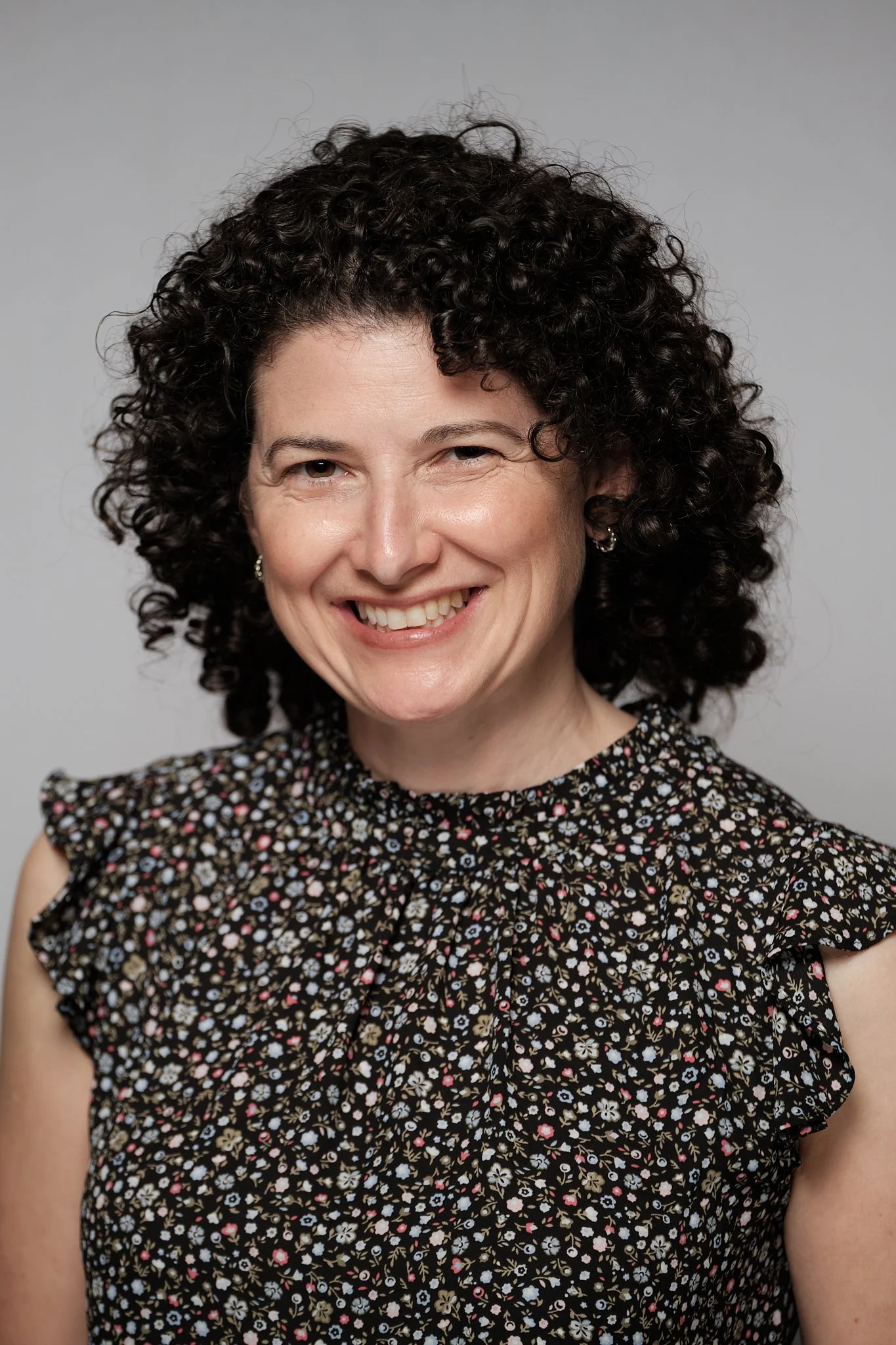The Power and Responsibility of Being an arzenu Delegate
As I walked into the newly dedicated pavilion at HUC’s Jerusalem campus on Monday morning, I didn’t know exactly what to expect. There were familiar hugs from old friends and the wave of nostalgia that always accompanies entering a place filled with memories. But there was also something new for me—a sea of unfamiliar faces, name tags from countries I’d never visited, and a palpable energy that hinted at something extraordinary. It felt like stepping backstage before a performance, unsure of the roles people might play, the emotions they carried, or the commitment that led them to this moment.
Our delegation was a living mosaic—nearly 70 individuals from every corner of the globe. We were Jews of Color, Latinx, Canadians, Hungarians, Brazilians, and Argentinians. We came from New Zealand, the UK, and the US, spanning generations and ideologies. We were proud members of the LGBTQ+ community and devoted members of interfaith families. Some of us hailed from cities with vibrant Jewish life; others came from places where they were the only Jewish community for miles. We brought with us distinct cultural contexts, educational backgrounds, and political realities—from communities with pro-Israel Christian neighbors to those surrounded by anti-Israel sentiment. We were parents and grandparents of children who may not be recognized as Jewish by Israeli Orthodox rabbis, and volunteers and leaders in the American, Israeli, British, and global Progressive Jewish communities. We were Jewish professionals, civil leaders, community organizers, college students, and young adults. From the first moment, there was a commitment to embrace our diversity as our greatest strength and opportunity.
Each day of the World Zionist Congress and its surrounding events offered new opportunities to learn from one another and to deepen our shared commitment to equity, human dignity, democracy, and inclusivity. We embraced the idea that unity does not require uniformity. As the largest delegation at the World Zionist Congress, we leaned into our differences, knowing that they enriched our conversations and strengthened our collective voice. We shared stories of civil rights struggles and rising authoritarianism in our home countries. We spoke openly about the spread of hatred and the breakdown of dialogue among friends and family. And we wrestled with our complicated relationships with Israel and its government, reaffirming our commitment to work toward a better future.
On the second day of the Congress, our delegation separated into ten committees to review and respond to proposed resolutions. In those rooms, our unique backgrounds and perspectives came alive. Delegates connected over shared identities, nationalities, and common goals. We spoke from the heart about why we were there and who we came to represent. We built trust, honored each other’s lived experiences, and worked collaboratively to reach consensus.
Together, we helped pass dozens of resolutions that reflected our values: a call for government transparency, an immediate investigation into the October 7th attack, and a demand to reopen the egalitarian plaza at the Kotel. We stood firm against resolutions promoting settlement in Gaza or the E1 territory. These victories were not just political—they were deeply personal. They were the result of relationships built across the spectrum of Jewish life, and they filled me with a renewed sense of hope and optimism.
On Monday, I joined other Reform Movement leaders at the Knesset with our colleague MK Gilad Kariv. In his powerful opening remarks on the official Memorial Day of Prime Minister Rabin’s assassination, MK Kariv reminded us of the dangers of division. He recalled Rabin’s message at the World Zionist Congress over 35 years ago: that Israel must be both a refuge and a responsibility.
This week, Reform Movement representatives from every corner of the world answered that call. We bore our responsibility with conviction, kindness, and perseverance. In our diversity, we found strength. In our unity, we found purpose. And in our shared purpose, we found the inspiration to keep building a more inclusive, just, and hopeful Jewish state.
Rabbi Stacy Rigler, RJE is the CEO of the Association of Reform Jewish Educators. She is a proud member of Temple Sholom in Broomall, PA, the URJ Camp Harlam Camp Council, RAC-PA Leadership Team, the Commission on Social Action and the URJ Board. She is also a mother of three and wife of Rabbi Peter Rigler.


